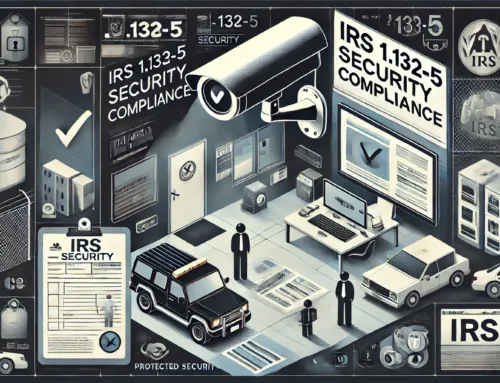
Network and Residential Security
In relation to residential IT and WiFi, a network refers to a system of connected devices that can communicate with each other and share information and resources, such as printers, files, and an Internet connection. A home network typically includes a WiFi router or access point that serves as a central hub for connecting devices, such as computers, smartphones, tablets, and smart home devices, to the Internet and to each other. These devices connect to the WiFi router or access point wirelessly using WiFi technology or through wired connections using Ethernet cables. The network may also include additional networking hardware, such as switches or repeaters, to extend the range and capacity of the network.
This home Network is the bedrock of residential security as it underpins all aspects of the technical systems and as homes become increasingly interconnected through smart devices, the need for a robust and secure network infrastructure has never been more critical. The Internet of Things (IoT) enhances convenience and security—smart locks, surveillance cameras, alarm systems, and even AI-driven automation all contribute to a safer and more efficient living environment. However, these same technologies can create vulnerabilities if not properly secured. A well-designed network serves as the foundation for seamless integration, fast and reliable connectivity, and strong cybersecurity defenses that protect your home and its occupants from digital threats.
A resilient home network goes beyond just fast Wi-Fi. It involves segmented networks to isolate critical security systems, encrypted communications, firewalls, and real-time threat monitoring to prevent unauthorized access. Cybercriminals frequently target unsecured IoT devices as entry points into home networks, making it essential to have proactive security measures in place. Whether you are managing a high-profile estate or a private residence, investing in a professionally designed network ensures that your security infrastructure operates at its highest potential—allowing you to control access, monitor threats, and maintain privacy with confidence.
What are Common Home Network Problems?
There are several common network problems that homes may experience:
- Slow internet speeds: This is one of the most common network problems. Slow speeds can be caused by a variety of factors, including distance from the router, interference from other devices, or an outdated router.
- Poor Wi-Fi signal: Weak Wi-Fi signal can result in slow internet speeds and poor connectivity. This can be caused by distance from the router, interference from other devices, or the construction of the home.
- Limited range: Some homes may have dead spots where the Wi-Fi signal is weak or nonexistent. This can be caused by distance from the router or interference from other devices.
- Network congestion: When too many devices are connected to the network, it can cause congestion and slow down internet speeds. This can be addressed by limiting the number of devices connected or upgrading to a higher-speed internet plan.
- Router issues: An outdated or malfunctioning router can cause connectivity issues and slow speeds. This can be addressed by upgrading to a newer model or resetting the router.
- Interference from other devices: Other electronic devices in the home, such as microwaves or baby monitors, can interfere with the Wi-Fi signal and cause connectivity issues.
- Security issues: Weak passwords or outdated security protocols can leave the network vulnerable to hacking and other security threats. This can be addressed by updating passwords and enabling the latest security protocols.
Reasons Why Network security is essential for a house:
- Protection against cyber threats: Cyber threats such as viruses, malware, and hackers can compromise the security of your network, steal sensitive information, and cause damage to your devices. Network security measures such as firewalls, antivirus software, and intrusion detection systems can help prevent these attacks and keep your devices and personal information safe.
- Safeguarding personal information: With the rise of smart homes and the internet of things (IoT), more and more devices in our homes are connected to the internet. This includes devices such as security cameras, smart locks, and smart thermostats. These devices can collect and store personal information, such as passwords and credit card numbers, which makes them a potential target for hackers. Network security measures can protect this information and prevent it from falling into the wrong hands.
- Protection of family members: Children and other family members can be vulnerable to online threats such as cyberbullying, identity theft, and inappropriate content. Network security measures such as parental controls can help protect them from these threats and ensure they use the internet safely.
- Protection of financial assets: Many people conduct financial transactions online, such as online banking and shopping. A compromised network can expose financial information and make it vulnerable to theft. Network security measures can help protect these transactions and prevent financial loss.
In summary, network security is essential for a house to protect personal information, family members, financial assets, and to prevent cyber threats from compromising the security of your network and devices. As modern residences integrate more smart technologies, the network infrastructure must evolve to support not only seamless connectivity but also robust security measures. From safeguarding sensitive personal and financial data to ensuring the integrity of smart home security systems, a well-designed network plays a crucial role in residential protection.
Moreover, network infrastructures are dynamic, constantly influenced by updates to devices, applications, and operating systems. Regular annual or semi-annual security assessments are essential to ensure that security patches are properly applied and vulnerabilities are addressed before they can be exploited. Additionally, internal risks should not be overlooked—compromises can occur accidentally or intentionally from within the household, including by house staff or contractors with network access. Establishing clear Residential Security and IT Policies helps safeguard assets, intellectual property, and privacy while providing the Principal with a strong legal framework to manage risk.
By proactively investing in network security, residents can maintain control, confidence, and resilience in an ever-evolving digital landscape. A fortified home network is not just about preventing cyber threats—it is about ensuring a secure, efficient, and private living environment.
How to Assess Your Network Vulnerabilities, and/Or Design a Robust, Secure Home Network?
The ETS Residential Security team offers a comprehensive security assessment that goes beyond your digital perimeter. We evaluate your entire residence—including your network infrastructure, smart home devices, physical security measures, and access controls—to identify potential weaknesses and provide a tailored, actionable plan to fortify your home against both digital and physical threats.. Click here to learn more about our Residential Risk Assessments.






